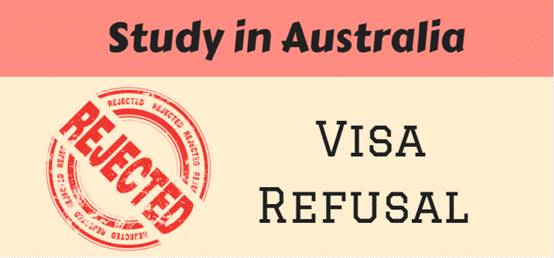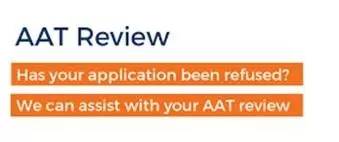You come to Australia, whether studying abroad or immigrants, hope that their visa can smoothly come down. However, there are always some twists and turns in life, so the refusal to sign is often encountered. Since last year, Australia's immigration policy has been tightening, especially at a time when new and old policies have changed, such as the decline rate in the period following the implementation of the 7.1 New deal for overseas students last year.

There are many reasons for refusing a visa:
- Some are their own problems, such as complex background, inadequate preparation of materials or even errors;
- Some of the policy changes did not clarify the requirements;
- What's more, different visa officers have different interpretations of immigration laws.
Either way, the result is not what we want to see. Fortunately, for example, the last substantive visa has not expired, or outside the country, there is a chance to resubmit the application. But many remain in the country, unable to submit new applications because of visa terms or immigration laws. At this time, let's go, a little disgruntled; stay, is there any other way?
Today we'll discuss a common way to save it: appeal.
Most domestic applicants have a chance to appeal after visa rejection. The general appeal is divided into: AAT appeal / FCC appeal / FCA appeal / HC appeal, we mainly talk about the more common two kinds.

AAT appeal
AAT is the most common appeal and usually requires an application within 21 days after the refusal. The main advantage of the AAT appeal is that the case is heard on the basis of the fact that the (on merits). Fact review (merits review) is an administrative review of a case in which the review body acts within the same legal framework as the visa officer. It also has the advantage that the bridge visa that AAT won during the appeal is still valid so that it can continue to stay legally in Australia. We know that the domestic application will be automatically issued after the bridge visa, this visa has no validity. If the application is rejected, the bridge visa will expire 35 days after the refusal. But if the applicant appeals within 21 days, the bridge visa will remain valid for the time being. This precious time can leave hope for many people to emigrate.

The decisions that AAT can make are:
- Maintaining the outcome of the Visa Officer's hearing;
- The outcome of the previous trial was different from that of the previous visa officer;
- Dismissing the result of the visa officer's hearing and giving a new result;
- (B) return the case to the Migration Board for reaffirmation;
If the AAT wins, the visa has a good chance of being approved. If you lose, you can continue to appeal, but many will give up for reasons such as time and economy. Note that, on the issue of visa rejection and cancellation, even if the AAT rejected the immigration hearing, the Minister of Immigration still had the right not to accept the decision of the AAT and to maintain the original result. The immigration minister does not have the right to reject the appeal against naturalization, but is seeking power to do so, and the bill has now been submitted to parliament.
FCC appeal
FCC, the Federal Circuit Court of Australia (Federal Circuit Court, is based on the Federal Circuit Court of Australia Act 1999 (formerly known as the Federal Magistrates Act) Independent Court), which acts under the Australian Constitution. Its jurisdiction was initially established by Federal Magistrates (Consequential Amendments) Act 1999. On 23 June 2000, the Tribunal received its first application for appeal in Adelaire, Brisbane, Canberra, Melbourne, Newcastle on 3 July, Paramata and Townsville held their first meetings respectively.

If the AAT appeals against the results, can continue to appeal to the Federal Circuit Court. The court can review decisions made on the basis of Migration Act 1958. Those who have the power to make decisions based on the Migration Act include the Minister of Immigration, members of the AAT and members of the IAA (Immigration Assessment Authority), who depend primarily on the facts of the application to determine whether an applicant can obtain a visa. The Federal Circuit Court, which is independent of those who make decisions, does not judge the facts in the application, nor does it decide to approve or reject a visa application. It only examines whether a decision is correct and whether there is a "judicial error" (jurisdictional error), which means emphasizing form rather than content. For example, the Immigration Service rejected a visa application and the AAT confirmed the refusal after appeal. Then the appeal to the Federal Circuit Court will only examine whether the refusal decision was made in accordance with the law, regardless of whether the visa application itself meets the criteria for obtaining the visa.

If the court finds a "judicial error", it can:
- Return the case to the person who made the decision, and
- The immigration minister has no right to intervene.
However, the Tribunal is not competent to:
- New factual information (unless it is related to a judicial error made by the person making the decision) in the rehearing of the facts and the original bag in the visa application, o
- Visa approval
As for the Federal Court of FCA (Federal Court of Australia,) and the Supreme Court of HC (High Court,), if they are not satisfied with the outcome of the appeal, they may continue to appeal until the Supreme Court. But these processes can take years and a lot of money, so few people get there because visas are denied.
(分析研究经验做出结论) sum up
Visa rejection is frustrating, but there is always a way to get there, but whatever remedial action you take, you have to pay attention to the timing, because every step we take is affected by it. In a way, whether you can stay or not depends on whether you can beat the time. Therefore, we must contact the immigration agents who have experience as soon as possible when we encounter problems. Never wait until the last minute!

